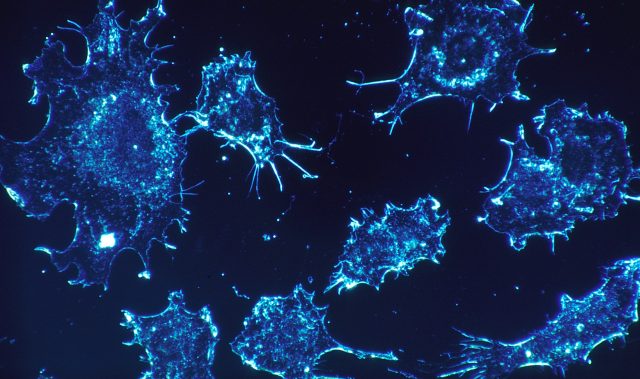
AsianScientist (Mar. 2, 2012) – Fears of involuntary exposure to cancer-causing chemicals in food and consumer products are diverting attention from proven methods of cancer prevention, an Australian cancer researcher says.
Writing in the medical journal The Lancet Oncology, Professor Bernard Stewart, from the University of New South Wales and the Cancer Control Program at the South Eastern Sydney Local Health District Public Health Unit, says a world-first analysis of evidence shows lifestyle factors are the most significant proven causes of cancer.
“Measures known to prevent cancer include smoking cessation, reducing alcohol intake, curbing obesity, and avoiding deliberate sun exposure. Diverting attention from these messages threatens to undermine their efficacy to deliver proven benefits,” said Stewart.
For this article, Prof. Stewart systematically reviewed medical literature on known and suspected cancer hazards.
“Cancer is arguably the most-feared disease in the Western world, and media attention focuses on any inference of causation,” he said. “Most people are aware of a multitude of possible cancer causes.”
While there is evidence that air pollution contributes to cancer risk, Stewart noted that the risk is at least ten times less than it is for smoking.
“Though exposure to very small amounts of carcinogenic (cancer-causing) chemicals occurs as a result of food contamination and by using certain consumer products, these circumstances have never been shown to cause cancer in developed countries.”
Stewart pointed out, however, that tanning beds were a proven melanoma risk in people. Recently, the New South Wales government introduced a measure to ban solariums in the state.
“Cancer has not been shown to have arisen because regulatory authorities overseeing food standards or consumer product safety overlooked the evidence,” Professor Stewart said, “with the possible exception of quicker action to ban tanning devices.”
He said focus must remain on proven cancer reducing strategies.
“There may be a case in public health policy for the message that cancer is not all the individual’s fault. But this perspective could bring with it the burden of needless anxiety and, in all likelihood, lessen inclination to adopt measures proven to reduce the risk of malignant disease,” he cautioned.
——
Source: UNSW.
Disclaimer: This article does not necessarily reflect the views of AsianScientist or its staff.












